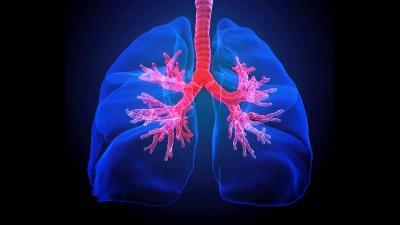Six Highlights from the 11th World Congress on Alternatives and Animal Use in the Life Sciences

Earlier this month, our research and regulatory affairs experts presented at the 11th World Congress on Alternatives and Animal Use in the Life Sciences (WC11), a virtual scientific conference that brought together thousands of researchers, policy experts, regulators, veterinarians, and animal protection groups from all over the world.
Tremendous progress has been made in the development of a wide range of nonanimal technologies, like stem cells, tissue chips, genomics, and microengineering, all capable of reducing and replacing the use of animals in research and testing, and ultimately improving the way we think about and perform science. The World Congress is an important venue for the Physicians Committee to tap into that progress, contributing our expertise and learning from and collaborating with leading worldwide innovators.
Key Highlights from WC11
1.
The Physicians Committee co-organized a meeting with participants from many different animal protection groups working across the world and came together to share strategies and discuss tactics. The group co-authored a global statement about the need to replace animals in all areas of research and testing.
Ethical science requires the replacement of animals used in education, research, and testing; advancing science must go hand in hand with changing policies to ensure new models and methods are used in place of animals. Despite advancing science, animals are not being replaced quickly enough, which is why the Physicians Committee and 30 other advocacy organizations asked for decision-makers to implement policy and regulation changes to accelerate the uptake of nonanimal methods as replacements for animals in education, research, and testing. The statement also asked for institutions to promote strategies that phase out the use of animals and for World Congress organizers to focus on accelerating the implementation of nonanimal approaches at future conferences.
2.
Janine McCarthy, MPH, research policy specialist at the Physicians Committee, spoke on her work with tissue donation and why we should be increasing the availability and quality of human tissue for use and research. Along with the research community, regulatory agencies, and organ procurement organizations, McCarthy explored and addressed barriers to using human tissues and cells in research. This work is an important step in the transition away from the reliance on animals in research as we work toward more human-relevant methods.
McCarthy also discussed her work on how research funds are spent and how effective that spending is at impacting technological tools, drug discovery, and clinical applications. Ultimately, this work provides evidence that projects using animals are less effective and suggests that funds should be redirected to research using human-based approaches to maximize the impact for patients, the economy, and society.
3.
YOU-WC11, a program designed for early-career scientists who work in nonanimal areas of research, featured Physicians Committee experts with McCarthy serving on the organizing committee. She helped to put together several workshops that will offer young scientists’ practical tools for navigating publishing, career development, and overcoming organizational challenges in working with nonanimal methods. Elizabeth Baker, Esq., pharmaceutical policy program director at the Physicians Committee, also spoke at the Challenges and Opportunities for Expanding the 3Rs workshop on funding and regulation. During the workshop, students discussed how lack of funding of nonanimal methods is impeding scientific progress, how institutionalized bias favors animals research, the responsibilities of funding bodies to advance nonanimal methods through improving funding and transparency, and current efforts to overcome this barrier.
4.
The use of horseshoe crabs in vaccine development should be replaced with recombinant factor C (rFC,) a scalable, synthetic, nonanimal test. rFC is not only scientifically superior, but more ethical. Unfortunately, regulatory policies in the U.S. make it more burdensome to use rFC, compared to the traditional horseshoe crab blood test.
Baker presented on her and her team’s work to bring this issue to legislators, the FDA, and pharmaceutical companies. The Physicians Committee has been working directly with Congress and regulatory agencies to ensure that, in time, all batches of injectable drugs and vaccines, including those against COVID-19, are tested using nonanimal methods, without horseshoe crab blood.
How Vaccine Safety Testing Hurts Horseshoe Crabs—And Why It Doesn't Have To
5.
Kristie Sullivan, MPH, vice president of research policy at the Physicians Committee, presented on the rapid development of nonanimal approaches and highlighted global educational activities that empower innovators and regulators. One example of this is the Physicians Committee’s training effort called New Approach Methodology (NAM) Use for Regulatory Acceptance (NURA,) which promotes nonanimal methods by hosting in-person lectures, networking opportunities, online webinars, hands-on demonstrations, and open-access online resources.
As part of NURA, the Physicians Committee will be hosting Nix the Six: Strategies for Implementing a Non-animal Acute 6-Pack, a series of five virtual training and discussion sessions focused on available methods and strategies for avoiding or reducing animal tests when assessing chemicals and pesticides for the main six acute endpoints commonly referred to as the “6-pack.” Methods and strategies presented will be applicable to pesticides, antimicrobials, and other products. Each session will feature three to four short lectures and a final roundtable discussion in a Zoom webinar format. Attendees will be able to ask questions and provide comments; other applications may be used to enable additional interaction between attendees and panelists.
6.
Catharine E. Krebs, PhD, medical research specialist at the Physicians Committee, discussed a type of bias against nonanimal methods held by publication editors and peer reviewers. The Physicians Committee has been investigating scenarios in which researchers who use nonanimal methods submit their work to a journal for publication, only to have reviewers request that animal experiments need to be performed to validate findings.
We created a survey to assess this issue and have received responses from 90 researchers explaining their firsthand accounts. The results of this survey were presented as part of a round table dedicated to understanding publication bias against nonanimal methods. We’re currently working toward developing recommendations for reviewers, editors, and researchers to prevent this bias from standing in the way of more ethical and effective research methods.







